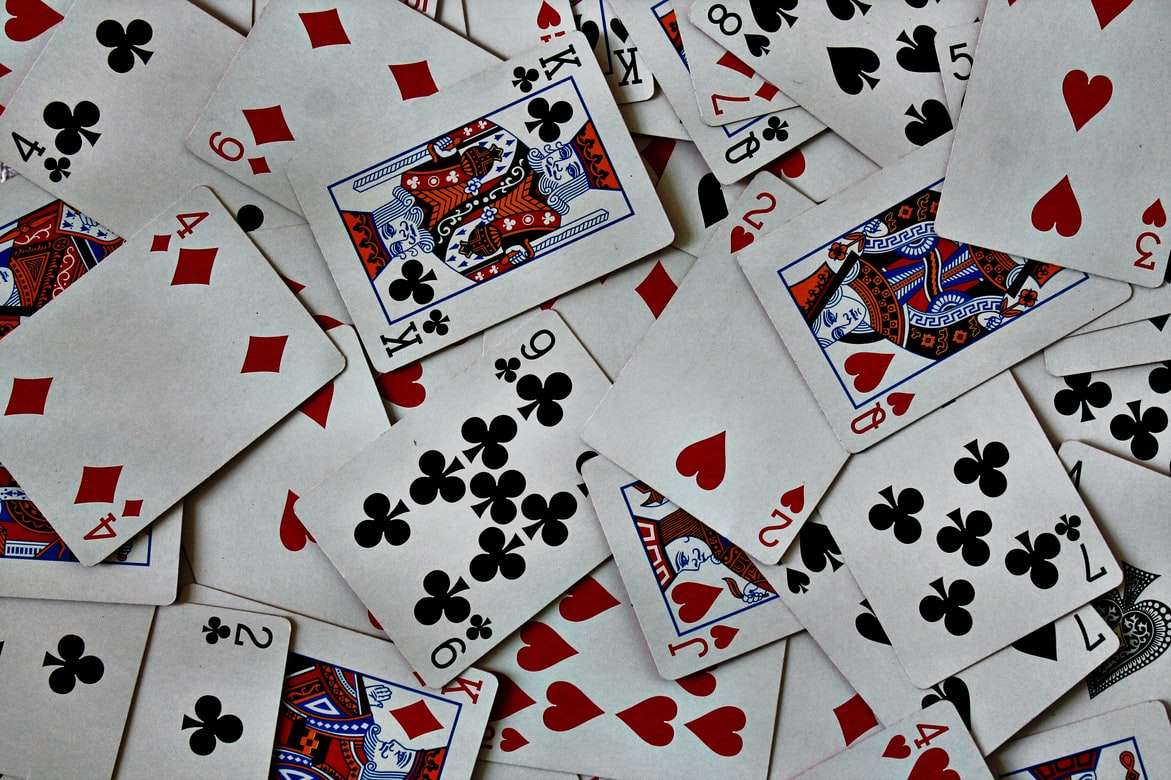There has never been a better time to be a fan of card games. In recent years, the number of new titles being released has grown dramatically thanks, in part, to games like Cards Against Humanity and Exploding Kittens.
These games have tapped into a desire for more social experiences while providing greater convenience than board games which can take a lot of time to set up and put away. With card games, all you have to do is open the pack, deal the appropriate number of cards, and start playing.
But while these new card games have become exponentially more popular in recent years, they pale in comparison when compared to the number of people that enjoy classic options like blackjack and poker.
While they may have different rules and, sometimes, use different cards, nearly all card games have a common ancestry from which they have evolved.
The First Card Game and the Evolution of Cards
The exact origins of card games has been lost to history due to poor record-keeping and the fact that early cards will have been made from organic materials that have decomposed over time.However, historians can use the wealth of evidence available to them to make an educated guess. In doing so, nearly all of them come to the conclusion that the first recorded card games date back to the Tang Dynasty in China. Sometime around the 9th century, members of the Wei clan are reported to have played the “leaf game”, which used dice and leaves.
Some dispute this, arguing that the leaf game doesn’t qualify as a card game. Instead, they point to a 1320 document that references two people that were found with paper playing cards in 1294, during the Yuan Dynasty.
By this time, cards were spreading across Asia and, by the 12th century, had made their way to Egypt. It is from here that the oldest surviving playing cards originated. The oldest near-complete set of cards are a few hundred years younger, having been dated back to the 15th century.
In the 1400s, playing cards had also arrived in Europe, where they were decorated with images of royalty, eventually evolving into the modern suits we know today.
The Creation of Today’s Classic Games
Blackjack, variants of poker, and baccarat are the three most popular types of card game played in casinos today. They can be found just about everywhere in the world, including on the internet.Online casinos typically offer a mix of different variants of these games too, helping to meet the needs of different players. For example, there are four common variants of blackjack online, including classic, premium, and high roller, each with slightly different rules, mechanics, and limits.

However, the games we know today actually descended from several different ones.
Blackjack has ancestors across Europe, including Spain’s “trentre-un”, England’s “bone ace”, and France’s “quinze”. While there were a few differences, they all involved the player having to make hands of cards that were as close to a target number as possible. French “vingt-un” eventually made its way across the Atlantic, where American casinos embraced it and even added unique side bets. One of these, which involved getting a black jack, is where the name we have today originated from.
Poker follows a similar path to blackjack in that it originated separately in multiple countries before consolidating in Europe and then being exported to the USA where its modern rules and variants were created. It was also here that the modern poker tournament was invented by Benny Binion when he organized the first WSOP.
Baccarat has a simpler history, originating in Italy as “baccara” in the 15th century before being exported to France, where it took on the name baccarat. However, its rules are somewhat different today because it made its way to the USA via South America and the Caribbean, where it was tweaked before Tommy Renzoni brought it to Las Vegas in the 1950s.
Modern Games
While classic games began life over one thousand years ago, many of the modern games that use specialist decks follow a very different path. Although games like Cards Against Humanity clearly drew inspiration from concepts created by larger game manufacturers in the 1990s, it was Kickstarter that helped get them to market.In 2010, Cards Against Humanity was published to the famous crowdfunding site. While initially seeking $4000, it raised $15,000, which the creators used to design even more cards for their deck. Exploding Kittens, another popular title today, followed suit in 2015. Originally asking for $10,000, its developers managed to rack up $8.7 million in pledges.
Whether these modern titles will live as long as classic games remains to be seen, but if they do, future historians will find it much easier to recount their origins.

